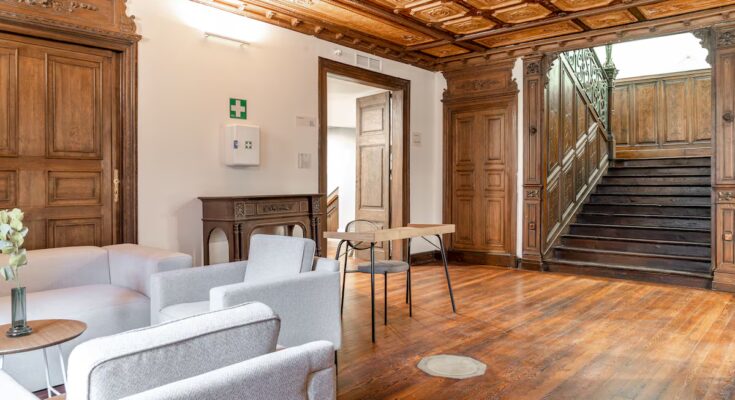Marriott, the world’s leading hotel company with more than 9,000 establishments, put the American company Sonder in the headlines of the entire business press on Monday 10 October. “Marriott has announced that the franchise agreement concluded with Sonder Holdings will not come into force due to the bankruptcy of the company,” he underlined in a short statement.
Sonder was founded in 2014 as a hospitality company that combines boutique hotels with tourist apartments for medium and long-term stays, with a portfolio, at the end of the first half of 2025, of 9,400 rooms distributed in 40 different cities across the United States, Canada, Europe and the Middle East. The proposal was aimed at young travellers, digital nomads or people who wanted to make extended stays outside of hotels. The question seems obvious. How is it possible for a hospitality company to fail in the midst of tourism’s biggest bull cycle?
The answer lies in a misleading growth model, in which investors thought the rapid, multimillion-dollar returns of technology companies could be replicated in the hotel industry, with much tighter margins. In its eleven years of existence, Sonder has raised 640 million euros in several financing rounds and its growth has been dizzying. “Venture capital is not suitable for hotels or tourist apartments, because they try to expand quickly, conquer the market at all costs, spend now, earn later and capture customers. In digital sectors, this risky bet may make sense, because the marginal cost of growth is almost zero, but in accommodation, with high assets, contracts and maintenance costs, this logic becomes toxic. These expenses do not disappear with technology”, underlines the spokesperson of a venture capital company consulted by this newspaper. In this way, the initial over-indebtedness can only be repaid if demand grows exponentially and money continues to flow. And that, in Sonder’s case, stopped happening as of early 2025, so Marriott decided to cut corners.
That same source now puts the spotlight, albeit on a smaller scale, on the German companies Numa and Limehome, with a very similar model to Sonder, and which have raised 133 and 85 million euros respectively in different funding rounds. From the income statements we only know that Numa increased its revenues by 100% in 2024 and plans to add another 80 million euros in 2025 and increase its ebitda (gross operating profit) by 50 million. It is known that Limehome will have a turnover of 25 million in Spain in 2024 alone.
Numa currently has more than 9,000 apartments and has among its shareholders Verlinvest, the international investment company backed by AB InBev, owner of Budweiser, the world’s largest brewer, which led the €55 million funding round in September 2023, or Blackrock. In Spain it has 15 assets, distributed between Barcelona, Madrid and Seville, with four each, Valencia (2) and Granada (1). The next inauguration is scheduled in Valencia and will take place in the second quarter of 2026 with a building of 107 apartments located in Guillem de Castro street, in the Ciutat Vella neighborhood and just two hundred meters from the Central Market. “Numa’s business model is unique, between classic hotels and Airbnb. Sonder is different”, underline company sources to distance themselves from the comparison.
For its part, Limehome counts four large funds among its shareholders (HV Holtzbrinck Ventures, Lakestar, Picus Capital, AW Rostamani Group and Capital) and last July reached the milestone of 10,000 units managed. “Achieving this in just six years is a great achievement that underlines the growing demand for our innovative hospitality concept, especially taking into account rising construction costs and the difficult financial environment,” said Josef Vollmayr, co-CEO of Limehome, in a press release. “From an investment perspective, serviced apartments offer greater flexibility and more stable long-term performance than traditional hotels. In a competitive market, our pre-defined standards and streamlined processes allow us to acquire and implement projects with investors in record time.”
In Spain Limehome has a portfolio of 750 operational rooms and another 950 signed for the next two years and has chosen to diversify risks by fully entering the hotel sector. So far it has managed two properties of 40 and 50 rooms in Barcelona and in 2027 it will start managing its first four-star hotel, with 67 rooms, also in Barcelona. A year later he will open his first large hotel in Madrid, which will be located in the San Blas neighborhood, with 107 rooms.



